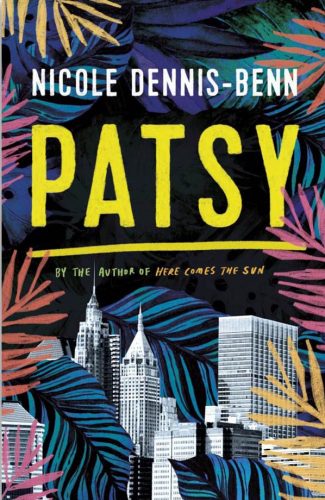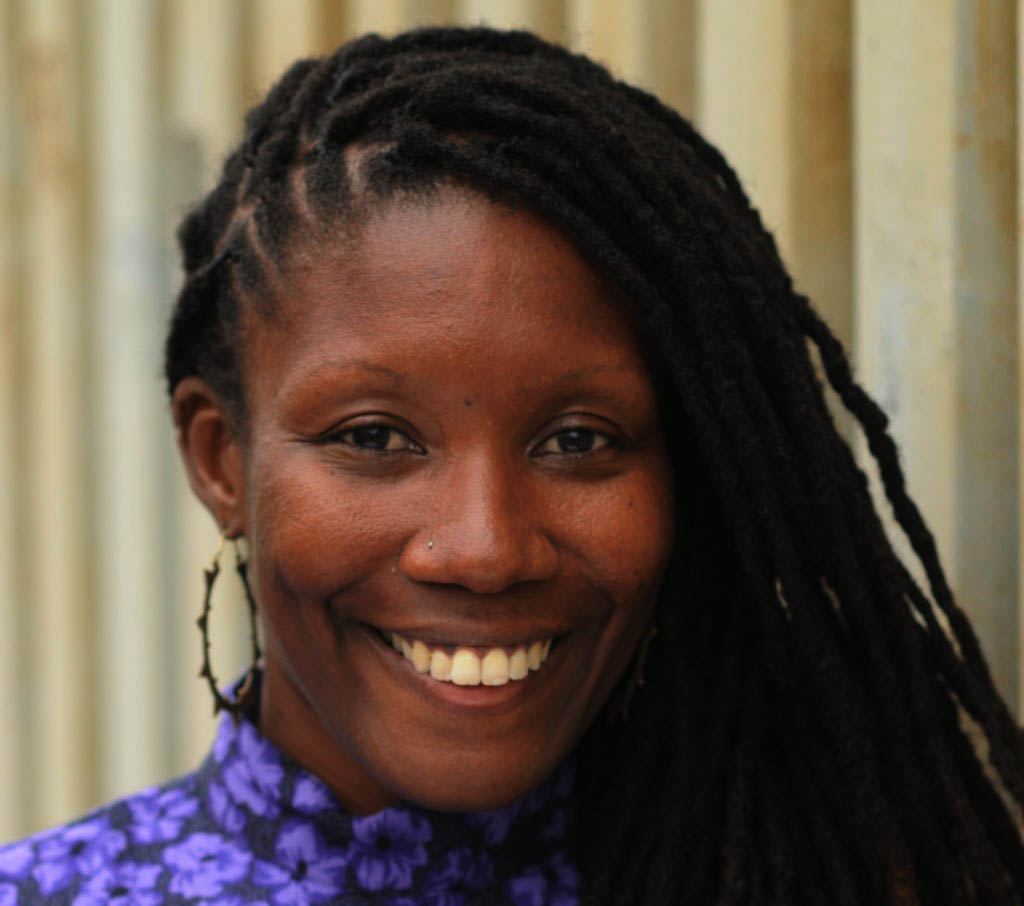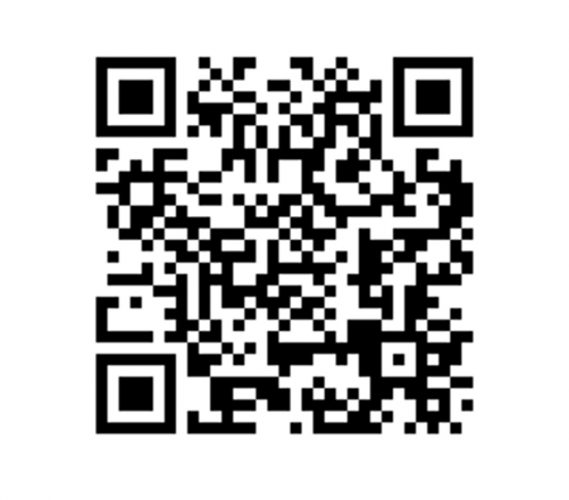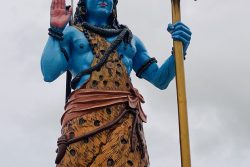June is Caribbean Heritage Month in the United States, acknowledging and celebrating the contributions of Caribbean immigrants there. June is also LGBTQIA+ Pride Month, when queer communities worldwide celebrate their contributions to society and their fight for their rights and freedoms.
Four years ago, Cindy of BookofCinz a Jamaican-Trinidadian book Instagrammer coined the Read Caribbean Month Challenge to encourage people to read more books about the Caribbean written by Caribbean people. For this month, I wanted a book that meets at these intersections: a book featuring queer characters written by a Caribbean author centring Caribbean spaces. That book was Patsy by Nicole Dennis Benn, which won the Lambda award for best Lesbian Fiction in 2020.

Patsy offers an unfiltered glimpse into the realities that undocumented Caribbean people face in the US as they chase economic stability and freedom to be themselves. It also shows the ripple effects their absence has on those they leave behind.
“Just two years shy of thirty, Patsy has nothing to show for it besides the flimsy brown envelope that she uses to shade herself from the white-hot glare of the sun. The envelope contains all her papers — from birth certificate to vaccination records. But most importantly, it carries her dream, a dream every Jamaican of a certain social ranking shares: boarding an airplane to America. For the destination, and for the ability to fly.” – p. 1
The year is 1998, and 28-year-old Patsy is standing in line at Jamaica’s American embassy and holding onto a dream. As an undereducated working-class Jamaican living in the ghettos of Pennyfield, Patsy feels stifled by her circumstances. Her small salary cannot support her household of three, forcing her into side hustles she’s not particularly proud of. For her, America holds the promise of economic elevation, reinvention and, most importantly, a reunion with her best friend and former lover, Cicely, who has been supporting her from abroad for many years through letters, phone calls and remittances.
When she gets a visa after her second attempt, she rejoices at the life changing potential it holds for her. However, the one person threatening to hamper Patsy’s dreams: her five-year-old daughter Tru. The truth is that Patsy has been dreaming and planning her future without Tru, a future in which she can be free to live and love as she pleases without the burdens of motherhood and the worries of poverty. Even though she feels guilty for her selfishness, she eventually decides to abandon Tru to chase her hopes and dreams in America.
But once she gets to States, she quickly realises that America’s reality differs significantly from what she saw in her favourite sitcoms and read in Cicely’s letters. Devastated but determined not to return to Jamaica, Patsy bands her waist and struggles to make a place for herself in this colder, crueller world.
“Ever since her mother left, Tru has been feeling trapped in a space between dreaming and waking. When she came back from the airport, she expected to see her mother, searching through the whole house to find her, thinking maybe, just maybe, she didn’t really leave. That she was only dreaming everything.” – p. 87
Back across the Atlantic, Tru struggles to adapt to her mother’s absence. She’s forced to move in with her father, Roy, since her grandmother, Mama G, cannot support her. Roy and his family are patient with her, but Tru’s anxiety, confusion and feelings of abandonment make the transition to these new living arrangements difficult. Worse, she’s also falling behind in school because she’s constantly distracted with searching the sky for a sign that her mother will return to her.
As the decade rolls on, Tru learns to cope for the most part, finding solace in the bond she develops with her father and friends over their shared love of football and athleticism. She refocuses and starts topping in her class in school again. All is well for a while until puberty hits, and she slowly realises that she’s not like the other girls her age. Her interests, attractions and ideal self-image do not conform with what’s expected of her as a young woman. This non-conformity brings new conflicts in her life as her stepmother struggles to understand her and as she’s ostracised by the teachers and students in her all-girls high school.
Her determination to be true to herself and the lingering traces of Patsy’s legacy get her into newer, stranger problems as she tries to navigate her budding gender identity and sexuality with no one around to guide her.
Messy Characters as Critiques for Broken Systems
Patsy is a novel driven heavily by its characters. Dennis-Benn has an incredible ability to create richly complicated, frustratingly messy characters that both moves the plot forward and invests us in the drama unfolding on the page. Throughout the novel, we see how many of these characters act in ways that contradict their beliefs, values, and desires in order to achieve what they want in their lives. As we get sucked deeper into the novel, Dennis-Benn uses these characters to ease us into the themes she wants to explore in her story.
For example, Dennis-Benn highlights the impacts of poverty and economic stagnation on working-class Jamaican women through Patsy, showing how the lack of opportunities for advancement is partly responsible for Patsy’s love-hate relationship with Tru. On the one hand, Patsy is deeply invested in Tru’s future, plunging herself into debt by delaying bill payments to scrounge enough money to send Tru to an expensive Catholic nursery school to give her the best start on her education. When that isn’t enough, she also picks up a side hustle for more money, even though she hates it.
Reading about her struggles is frustrating, especially as we learn about the reasons for her undereducation: from the incident that ended her high school experience, to Mama G’s unhealthy relationship with her predatory church. These circumstances force Patsy to grimly shoulder the burdens of all the household expenses until, at last, she can no longer stay true to her duty. Even when she gives up her role as the long-suffering and sacrificial mother society expects her to be, she still arranges for Tru to have the best shot at life so that she can break the cycle of poverty. Dennis-Benn also uses her messy characters to juxtapose the lives of different groups of undocumented immigrants and how they fight to survive. Patsy chooses to be as true to her dream as possible, fighting for her right to be independent and to love whoever she wants to love without shame. Cicely, Patsy’s best friend and lover from Jamaica, made her own contradictory choices in America. Unlike Patsy, who still clings to the hope that she can get a better education and earn more money in the future, Cicely chooses to sacrifice her education and career options and settle down into an unhappy marriage that promises economic stability. She is not alone. Later in the book, Patsy makes friends with a Trinidadian immigrant who has the same logic, though she’s willing to spend what little savings she can scrape together to pay for a sham marriage for legalising papers. Unlike Patsy, Fiona believes that love is not something immigrants can afford until they are properly legalised and stable in America, much to Patsy’s chagrin.
In all three instances, Dennis-Benne shows us that the immigrant experience in America is varied and frequently inglorious. Immigrants work hard, yes, but working hard doesn’t guarantee a good life. Immigrants may marry for papers, but that doesn’t guarantee a good life, either. Immigrant life is stressful, but for many it’s a sacrifice they are willing to make to live in a peace of their own making.
Queerness is Fluid
“Dat’s why ah rate yuh. Yuh so brave.”
“Brave?”
Saskia shrugs. “Just how yuh dress and carry yuhself. Yuh not afraid?”
“Ah can’t be scared to be me. Ah wouldn’t call dat brave.”
“What yuh call it, then?”
“Existing?”
“Yuh t’ink yuh can exist here?”
It’s Tru’s time to shrug. “Ah have been doing it so far.” – p. 338
Dennis-Benn does a lot with Patsy, but I admire how she presents her queer characters in the story. For one, she doesn’t label any of her character’s sexual orientations or gender identities. She lets their actions speak louder than any labels can, and with good reason. Throughout the book, we see that the character’s journeys to discover their sexual and gender identities are not straightforward.
Cicely and Patsy, for instance, had a long relationship which started platonically in their childhood and slowly grew into a romantic and sexual relationship as when they still lived in Pennyfield. Her love for Cicely is the main force behind Patsy’s desire to get a visa and move to the US. But both women had complicated relationships with the boys and men around them as well, despite the way they cared for each other.
As the book progresses, Patsy’s queerness becomes less about who she’s sexually and romantically attracted to, and more about her finding happiness for herself and joy in the place she builds for herself. It’s about grabbing onto opportunities to reinvent herself and live authentically, even if she must struggle to get to that point.
Cicely, tragically, chooses to sacrifice her queer joy for economic stability in her version of the American dream. This doesn’t mean that she stops being queer. Marriage, motherhood, and domesticity don’t miraculously cure her of her attractions and preferences. They just force her to tuck them deeper into herself and deal with the consequences of that repression.
Tru’s journey parallels Patsy’s as she chooses to shrug off society’s expectations of what she should look like and act like as a young woman. She refuses to conform to the stereotypes of femininity and live authentically within her environment with the resources she has. While this gets her a lot of respect from her best friends and father, she gets ostracised by the women around her. Her stepmother even takes her non-conformity as a personal affront, claiming that Tru is just acting boyish to insult her.
It’s sad to see Tru being forced to navigate her gender identity all on her own because she has no other examples of non-conforming women. It’s even sadder to see that the threat of violence always looms over her head because the people around her feel the need to correct her or deny her opportunities, despite what she does to prove herself worthy and to shrug off the constraints of gender. While she does ultimately find her place in the world, her journey is a hard one.
Conclusion
To say that I loved Patsy would be an understatement. I don’t remember the last time I was so invested in a realist book. I took so many notes, highlighted so many quotes and passages and obsessively researched the book and its influences thereafter. I laughed, cried, and raged throughout the reading, getting deeply invested in the characters and their fates. Even now, Patsy still feels real to me, like I could open the Jamaica Gleaner tomorrow and read about Tru’s latest football exploits, or bump shoulders with Patsy if I meander carelessly down Brooklyn’s streets.
I loved the way Dennis-Benn was able to capture the unique experiences of Caribbean immigrants and the many contradictions at the heart of the liminal spaces they occupy. I recommend this book to anyone who loves books about messy characters and their drama, wants to read more Caribbean literature and books by and about queer Caribbean people. Patsy is truly a messy fave, and I look forward to seeing where Nicole Dennis-Benn takes her pen next.
My rating:
Want to learn more about Patsy and queer Caribbean fiction? Scan the QR code below for a video of Nicole Dennis-Benn in conversation with Roxane Gay and to check out Bocas Lit Fest’s BackChat 2022 video.
Books by authors featured in BackChat:
1. Things I Have Withheld by Kei Miller
2. Pitch Lake by Andre Bagoo
3. Antiman by Rajiv Mohabir
4. Everyone Knows I am a Haunting by Shivanee Ramlochan










